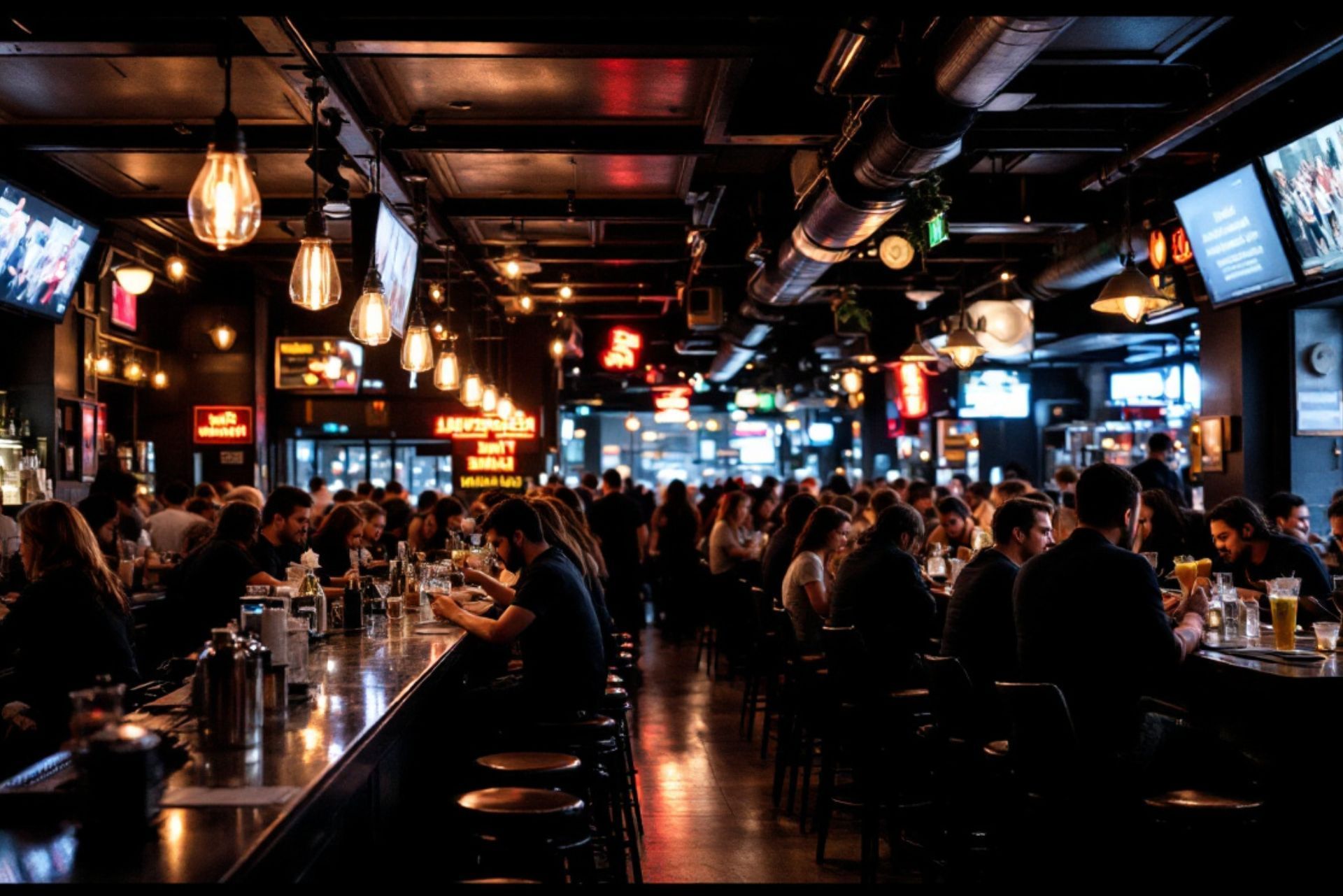New York Liquor Liability Insurance
See How We're Different:
or Call Us: 212-425-8150

Most Common Business Policies
Index
Contact Us
Liquor liability insurance is an essential component for businesses that serve alcohol, particularly in a bustling state like New York. Understanding this insurance can save businesses from financial disasters and legal complications. This article breaks down everything you need to know about liquor liability insurance, especially specific nuances prevalent in New York.
Understanding Liquor Liability Insurance
Before diving into the specifics, it’s important to grasp the foundational aspects of liquor liability insurance. This type of insurance protects businesses that serve alcoholic beverages from claims arising from the actions of intoxicated patrons.
Definition and Importance of Liquor Liability Insurance
Liquor liability insurance provides coverage for legal costs and damages that arise when a business is held liable for injuries or damages caused by intoxicated individuals. This can include incidents such as fights, accidents, or other forms of harm resulting from someone who was overserved alcohol.
The importance of this coverage cannot be understated. With the potential for significant legal judgments and settlements, it serves as a crucial safety net for bars, restaurants, and other establishments that sell alcohol. The financial ramifications of a lawsuit can be devastating, often leading to the closure of a business if adequate insurance is not in place. Additionally, liquor liability insurance can also cover costs associated with legal defense, which can be substantial even if the business is ultimately found not liable.
Who Needs Liquor Liability Insurance?
While all businesses that serve alcohol should consider liquor liability insurance, specific establishments are particularly vulnerable. This includes bars, nightclubs, restaurants, and catering services. Additionally, event organizers who serve alcohol at private or public gatherings should also seek this coverage.
Moreover, some states, including New York, mandate liquor liability insurance for certain types of licenses. Hence, it’s not just wise; it often becomes a legal requirement. Beyond compliance, having this insurance can enhance a business's reputation, demonstrating to patrons that the establishment takes responsible service seriously. This can foster a safer environment for customers and staff alike, ultimately contributing to a more enjoyable experience for everyone involved. Furthermore, many insurance providers offer risk management resources and training programs that can help businesses implement responsible serving practices, further mitigating potential liabilities.

The Specifics of New York Liquor Liability Insurance
Diving into the specifics of New York’s liquor liability insurance reveals aspects unique to the state. New York has laws and regulations that dictate how liquor liability insurance functions, making it crucial for local businesses to stay informed.
New York State Liquor Liability Laws
In New York, the law does not automatically grant immunity to businesses that serve alcohol. The state has enacted the Dram Shop Law, which allows individuals to seek damages from establishments that serve alcohol to visibly intoxicated persons or minors.
This law makes it imperative for businesses to manage responsible serving practices. Establishments have a legal and moral obligation to ensure patrons consume alcohol moderately, and failure to do so can lead to serious legal consequences. Moreover, the law emphasizes the importance of training staff not only in alcohol service but also in recognizing signs of intoxication. This proactive approach can significantly reduce the risk of incidents that could lead to liability claims.
How New York's Laws Affect Your Business
New York's liquor liability laws significantly impact how businesses operate. Owners must engage in responsible serving techniques to minimize liability; this includes training staff, monitoring patron behavior, and implementing policies regarding alcohol service.
Additionally, in the case of a negligent claim, establishments can face hefty financial repercussions. Therefore, having adequate liquor liability coverage becomes not just a business asset but a necessity for survival and compliance. This coverage not only protects against potential lawsuits but also helps in safeguarding the establishment's reputation. In a city as vibrant and competitive as New York, maintaining a good standing with both patrons and regulatory bodies is essential. Furthermore, many insurance providers offer risk management resources, which can assist businesses in developing effective strategies to mitigate risks associated with alcohol service, thereby enhancing overall operational safety.
Key Features of Liquor Liability Insurance
Like any insurance policy, understanding the critical features of liquor liability insurance is fundamental. Knowing what is covered and the limitations of your policy helps in assessing the right kind of insurance for your business.
Coverage Details
The coverage provided by liquor liability insurance typically includes legal defense fees, settlements, and judgments arising from incidents related to alcohol service. Moreover, some policies may also cover damage to property or personal injuries that result from intoxicated patrons.
It's essential to read the policy details carefully, as coverage can vary significantly from one insurer to another. Some may even offer additional endorsements that provide coverage for broader risks associated with serving alcohol. For instance, certain policies might include coverage for employee training programs aimed at responsible alcohol service, which can help mitigate risks and demonstrate a commitment to safety. This proactive approach not only protects your business but can also enhance your reputation within the community.
Policy Limitations and Exclusions
While liquor liability insurance offers a robust safety net, it is not comprehensive. Policies generally have exclusions for certain types of events, such as drinking contests or other activities that could aggravate liability risks.
Furthermore, it’s important to note the limits of coverage – this refers to the maximum amount the insurance will pay for claims. Establishments need to evaluate their risk level and potential liabilities to choose limits that adequately protect their assets. Additionally, some policies may exclude coverage for incidents that occur off-premises or during special events, such as festivals or private parties. Understanding these nuances is crucial, as businesses often engage in various activities that could expose them to different levels of risk, and being underinsured in these scenarios can lead to significant financial repercussions.
The Cost of Liquor Liability Insurance in New York
Understanding the cost structure of liquor liability insurance can aid businesses in budgeting effectively. The premium rates can vary based on numerous factors, so being aware of these influences seems pertinent.
Factors Influencing Insurance Rates
The costs associated with liquor liability insurance are influenced by several factors including the type of establishment, location, and the claim history of the business. For example, bars and nightclubs that experience higher patron traffic may pay more than restaurants with lower alcohol sales.
Other factors include the size of the business, annual sales volume, and safety measures implemented by the establishment. Insurers often assess these when determining the premium, so having robust risk management practices can help drive costs down. Additionally, the specific types of alcohol served and the hours of operation can also play a significant role in shaping the insurance rates. Establishments that serve a wider variety of alcoholic beverages or operate late into the night may be viewed as higher risk, thus leading to increased premiums.
Tips for Reducing Insurance Costs
There are numerous ways businesses can potentially reduce their liquor liability insurance costs. One effective approach is implementing robust employee training programs focused on responsible selling practices.
- Shop around for multiple insurance quotes to compare rates and coverage.
- Increase deductibles to lower premiums, while ensuring you can afford to pay out of pocket when necessary.
- Regularly review and update your insurance policy to reflect changes in your business.
Being proactive in risk management can lead to lower rates as insurers see a commitment to minimizing potential liability. Furthermore, establishing a clear set of house policies regarding alcohol service can not only enhance safety but also demonstrate to insurers that the business is serious about mitigating risks. Engaging with local law enforcement or community programs to promote responsible drinking can also reflect positively on your business's reputation, potentially influencing insurance costs favorably.
Another strategy is to maintain a good relationship with your insurance provider. Regular communication about your business operations and any changes can help insurers understand your risk profile better. This transparency can lead to more favorable terms and conditions on your policy, as well as opportunities for discounts or tailored coverage options that align with your specific needs. Networking with other business owners in the industry can also provide insights into effective practices that have helped them manage their insurance costs effectively.

Choosing the Right Liquor Liability Insurance Provider
Selecting an insurance provider is a critical decision that requires careful consideration. The right insurer can offer not just coverage, but a partnership that supports business stability. In the highly regulated environment of the hospitality industry, having a knowledgeable partner can make all the difference in ensuring compliance and managing risks effectively.
What to Look for in an Insurance Provider
When choosing an insurance provider for liquor liability coverage, consider their experience in dealing with similar types of businesses. Insurers who specialize in hospitality can offer tailored solutions that address the unique challenges faced by bars and restaurants. They understand the nuances of liquor laws and the specific risks associated with serving alcohol, which can vary significantly by location. This expertise can be invaluable in crafting a policy that not only meets legal requirements but also aligns with your business model.
Additionally, examine the financial stability and customer service reputation of the provider. Reading customer reviews and checking ratings with organizations like the Better Business Bureau can provide insightful perspectives into their reliability. A provider with a strong track record of handling claims efficiently can save you time and stress when you need it most. Consider reaching out to other business owners in your network for recommendations, as firsthand experiences can shed light on the strengths and weaknesses of potential insurers.
Common Mistakes to Avoid When Choosing a Provider
One frequent mistake businesses make is focusing solely on the cost rather than the value of coverage provided. Cheaper premiums may come at the expense of essential coverage, which could leave businesses inadequately protected. It’s crucial to assess what is included in the policy and how it aligns with your specific risks. For instance, some policies might exclude coverage for certain events or circumstances that are common in the hospitality industry, such as third-party claims arising from intoxicated patrons.
Another common pitfall is failing to thoroughly read the policy terms. Owners should be aware of all exclusions and limitations to avoid surprises when making a claim. Engaging an insurance broker familiar with liquor liability can help in navigating the complexities of various products available. Brokers can provide valuable insights into which providers offer the best coverage for your needs and can assist in negotiating terms that are favorable for your business. Furthermore, they can help you understand the implications of various endorsements or riders that could enhance your policy, ensuring you have comprehensive protection against potential liabilities.
Frequently Asked Questions about Liquor Liability Insurance
This section addresses some common questions surrounding liquor liability insurance that many business owners may have. Clarifying these can demystify the process and emphasize the importance of having proper coverage.
Common Queries about Liquor Liability Insurance
Many businesses wonder, “Do I need liquor liability insurance if I serve alcohol infrequently?” The answer is usually yes. Even occasional service can lead to significant liabilities, particularly in a litigious society. For instance, a single incident involving an intoxicated patron can result in costly legal fees, settlements, or judgments that could jeopardize the financial stability of a business.
Others often ask, “Will my general liability insurance cover alcohol-related incidents?” Generally, it does not. Liquor liability insurance is specifically designed to handle risks related to alcohol service. This specialized coverage addresses unique scenarios, such as over-serving a guest or failing to prevent a patron from driving under the influence, which may not be adequately covered under a standard general liability policy.
Misconceptions about Liquor Liability Insurance
One prevailing misconception is that liquor liability insurance is only necessary for bars and large venues. However, any business that serves alcohol, including small restaurants or event planners, can benefit from this coverage to protect against unforeseen liabilities. Even a small gathering where alcohol is served can lead to unexpected incidents, making it essential for all businesses to consider their exposure to risk.
Another common myth is that having this insurance eliminates the possibility of lawsuits. While it does provide financial protection, it doesn’t shield businesses from legal action entirely. Thus, risk management is still essential. Implementing responsible service practices, such as training staff in recognizing signs of intoxication and establishing clear policies for serving alcohol, can significantly reduce the likelihood of incidents that lead to claims. Additionally, maintaining a safe environment for patrons can further mitigate risks associated with alcohol service.
